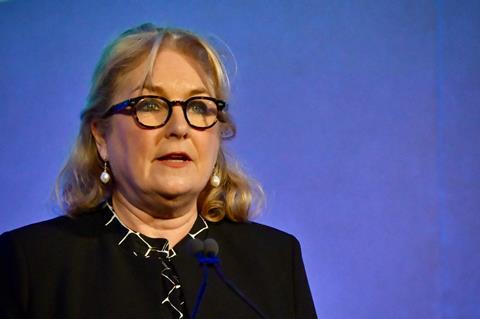Practitioners of different forms of dispute resolution should work together to preserve London’s status as a global legal centre, the lady chief justice said today. In a keynote speech to open London International Dispute Week, Baroness Carr of Walton-on-the-Hill proposed the establishment of a London dispute resolution committee to share experience and provide guidance on developments, including new forms of alternative dispute resolution.
'There is no reason why the courts, mediation and arbitration centres cannot come together in this way,' Lady Carr told delegates from 48 different jurisdictions represented at the event’s main conference. 'If we unite in this way, are we not likely to be better placed to thrive in the face of global challenges and to take advantage of future opportunities?'
Noting that the Law Commission’s proposed reform of the 1996 Arbitration Act had died with the last parliament, Lady Carr said she expected it to be revived in due course. She described the proposed changes as 'evolution not revolution'. However one component, a new requirement, in the absence of agreement otherwise, was for arbitration to be conducted according to the governing law of the seat of arbitration.

Meanwhile the Court of Appeal’s ruling in Churchill v Merthyr Tydfil has given the courts new powers to mandate ADR. In light of this, she said, 'judges are increasingly likely to be called upon – further to the requirement to manage cases – to consider whether to mandate the use of ADR. And not just to consider the question of whether to do so, but also the broader question of which form of dispute resolution to mandate.'
Choices would include a plethora of new hybrid forms, with which the judiciary and legal practitioners will need to become familiar. 'Here the parties will need to play their role. They will need to consider, constructively and further to the CPR’s overriding objective, which process might best suit their circumstances. They will need to inform the court of this view. And, as importantly, judges will need to be familiar with the different forms and their features, so that they can properly assess which is best-suited.'
This is where we can learn from other jurisdictions, she said. In the US, courts are guided by a Federal Guide to Judicial Management of ADR. 'Do we need to devise such guidance? Do we need to consider judicial training, as well as broader training in the legal profession, to familiarise use all with the manifold varieties of dispute resolution process?'
London International Disputes Week - established to reinforce London’s global status in the face of competition from new commercial courts and dispute resolution centres around the world - has attracted 7,000 delegates from 102 different jurisdictions.
This article is now closed for comment.



























9 Readers' comments